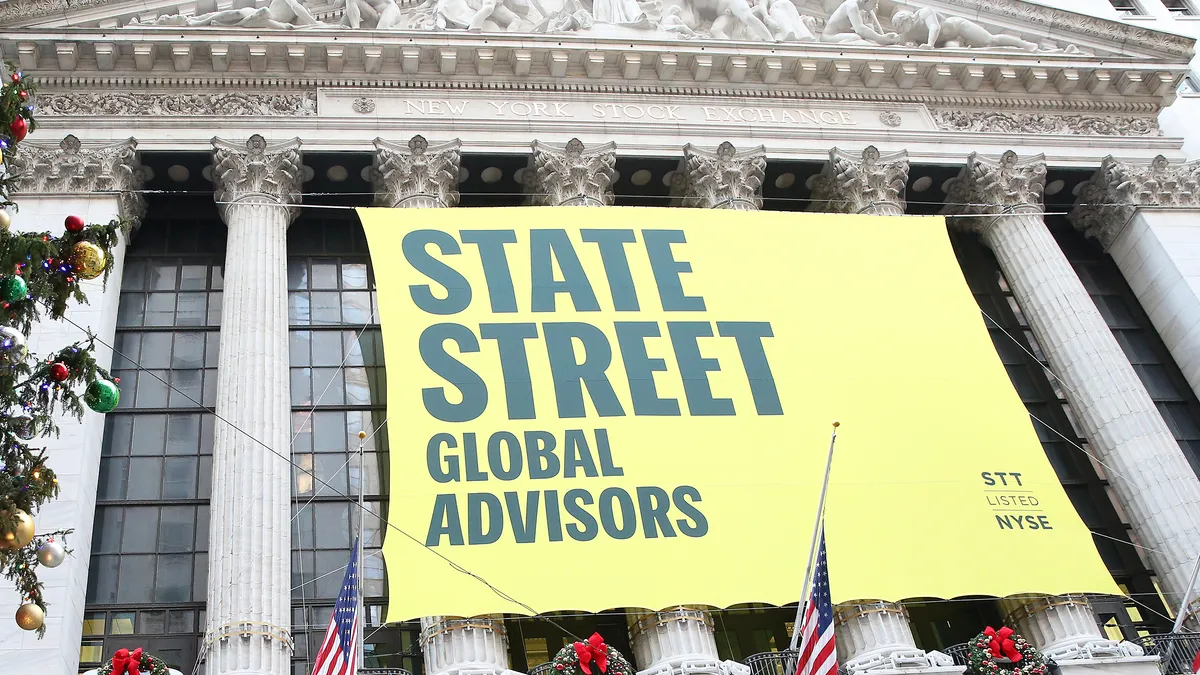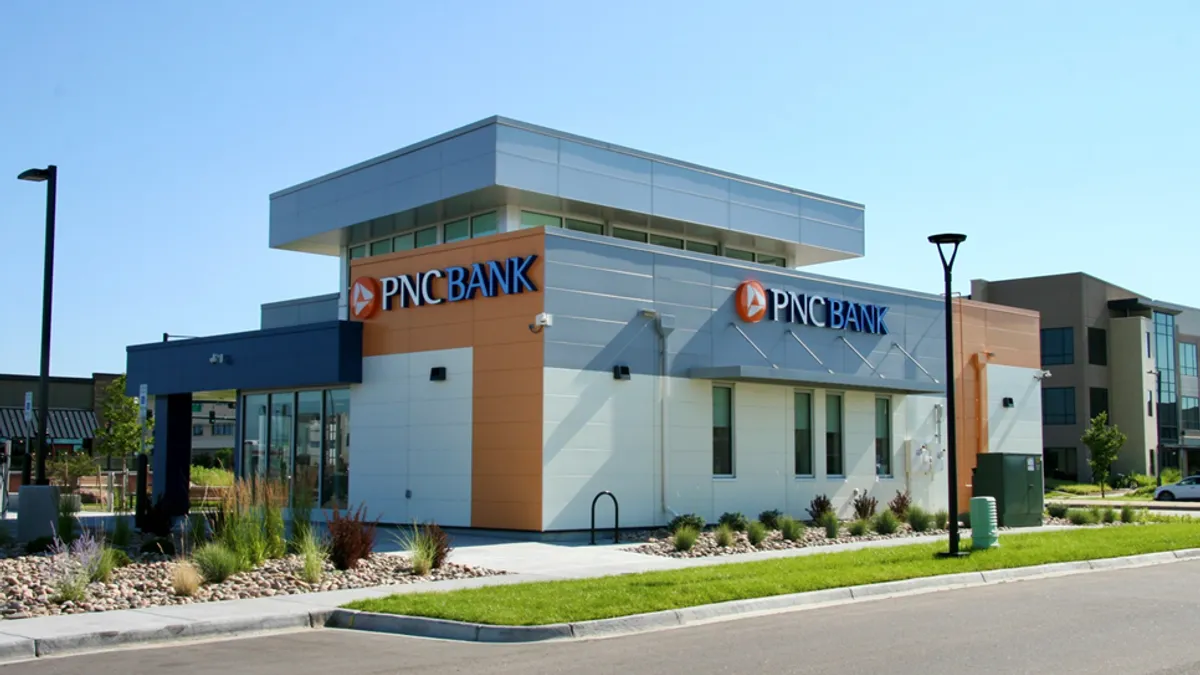Dive Brief:
- The Basel Committee on Banking Supervision on Thursday recommended the highest possible risk weighting — 1,250% — be applied to a bank's exposure to Bitcoin and some other cryptocurrencies. Under that suggestion, a bank would need to hold a dollar in capital for each dollar worth of Bitcoin, based on an 8% minimum capital requirement.
- The move comes as a number of banks expand their footprint in the crypto space. State Street, for example, announced Thursday it has launched a new unit focused on digital finance.
- Stablecoins — digital tokens pegged to traditional currencies such as the dollar — would be exempt from Basel's stricter risk weighting and governed under existing rules if they were fully reserved at all times, the committee said, although banks would have to monitor that. Potential central bank digital currencies were outside the scope of the recommendations, the committee said.
Dive Insight:
The Basel committee, which includes the Federal Reserve and the European Central Bank, cited market and credit risk, volatility, and the potential for fraud, hacking, money laundering, terrorist financing and reputational challenges among its reasoning for wanting to impose such a strict regime around cryptocurrencies.
The crypto space's flagship token, Bitcoin, has nearly quadrupled over the past year, but has lost nearly 42% of its value since it traded at $64,863 on April 14, according to Yahoo Finance.
That volatility factored into some banks' reluctance to explore the crypto space. Goldman Sachs in May 2020 labeled the tokens unsuitable for clients.
"We do not recommend Bitcoin on a strategic or tactical basis for clients' investment portfolios even though its volatility might lend itself to momentum oriented traders," the bank wrote at the time.
It reversed course early this year, relaunching its crypto trading desk in March.
Goldman is far from alone. BNY Mellon announced in February it would hold, transfer and issue cryptocurrencies on behalf of its asset-management clients. Wells Fargo said it planned to offer its crypto investment platform to wealthy clients beginning this month. Citi's global head of foreign exchange said his bank is weighing offering its clients cryptocurrency trading, custody and financing options — but is proceeding with caution.
State Street
The launch of State Street's digital unit comes as the some of the Boston-based custody bank's customers have increased their crypto exposure by 300% in the past two to three months.
"We are at a tipping point now where this is moving fast," Nadine Chakar, the executive tapped to lead State Street Digital, told the Financial Times. "We are getting calls from endowments and foundations that are getting donations in crypto and saying, 'What do we do with this?' We are seeing companies that are thinking of adding crypto to their balance sheets."
This isn't State Street's first lurch into crypto. London-based infrastructure provider Pure Digital said in April that it would use the bank's trading technology to create a cryptocurrency trading platform expected to go live in the middle of this year.
The 425-employee digital unit will encompass more than crypto, State Street said, adding it will expand into central bank digital currencies (CBDCs), blockchain technology and tokenization, and aim to evolve its GlobalLink into a digital multi-asset platform.
Chakar told American Banker the bank is not investing in or holding cryptocurrency. "In the future, we may facilitate trading as an agent, but right now, for us to make markets and liquidity, it's prohibitive,” Chakar said. "The objective here is to be able to operate and thrive in this new digital economy, and to help clients bridge that digital divide.”
Among the tools Chakar said State Street plans to introduce this year to accomplish that: a digital wallet.
But among the biggest changes Chakar anticipates is the "ecosystem" that emerges from the junction of traditional and digital banking. “We need a different workforce, a different type of culture,” she told American Banker. “We need traders that can code and coders that can trade, because that's where the industry is heading.”
In a press release Thursday, State Street CEO Ron O'Hanley said it is "critical" that the bank has the tools to serve its clients' traditional and digital banking needs.
“Our concern was if we don’t get ahead of it when it takes off, it may be really hard to catch up,” Chakar told Bloomberg.
Crypto's new frontier: 401(k)
Under the Basel committee's recommendations, cryptocurrencies would have the same risk weighting as assets created for decentralized finance, non-fungible tokens and securitized products where banks have insufficient information about underlying exposures.
The proposal is open to public comment, and the committee said such policies could change several times as the market shifts.
"The growth of crypto assets and related services has the potential to raise financial stability concerns and increase risks faced by banks," the committee said Thursday. "The capital will be sufficient to absorb a full write-off of the cryptoasset exposures without exposing depositors and other senior creditors of the banks to a loss."
Despite volatility and warnings from economic traditionalists, crypto's footprint appears to be expanding into retirement savings. Retirement account provider ForUsAll launched a partnership this month with crypto exchange company Coinbase that will allow employees to invest up to 5% of their 401(k) contributions in Bitcoin, Ethereum, Litecoin or other tokens.
Executives at ForUsAll did not tell The Wall Street Journal how many of its 400 employer clients have signed up for the cryptocurrency option.
Leery lawmakers
Such developments may be the sort of advancements that give lawmakers like Senate Banking Committee Chairman Sherrod Brown, D-OH, pause.
"We hear all kinds of promises about how crypto and digital currencies would be more inclusive alternatives to the current banking system, but the approaches offered by crypto companies so often are just simply not solutions. They're just another volatile risky asset for Wall Street speculation and putting people's hard-earned money, and essentially our entire financial system, at risk," Brown said Wednesday at a Senate panel hearing that focused mostly on the Fed's efforts to proceed with creating a digital dollar.
Like the Basel Committee in its proposal, some lawmakers at the hearing took care to distinguish between CBDCs and the crypto space at large.
"In theory, a digital currency issued and backed by a central bank could provide the advantages of cryptocurrency without those risks," Sen. Elizabeth Warren, D-MA, said, citing security, stability and the level of trust the Fed has earned. "It could help improve financial inclusion, efficiency, and the safety of our financial system — if that digital public money is well-designed and efficiently executed, which are two very big 'ifs.'"
Not all lawmakers are sold, however. "We shouldn't take steps that could threaten to disintermediate, destabilize or drain significant deposits from the private-sector lenders," Sen. Bill Hagerty, R-TN, said Wednesday. "Can we better help those who are unbanked and underbanked by removing costly regulations or by continuing to encourage banks to expand their coverage rather than providing a public-run banking option at the Fed?"














